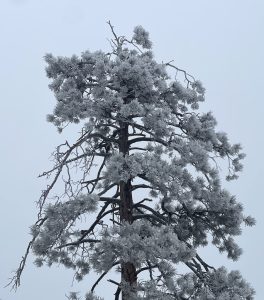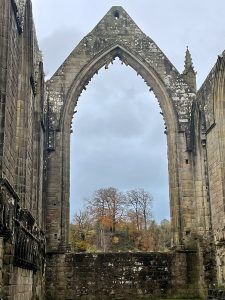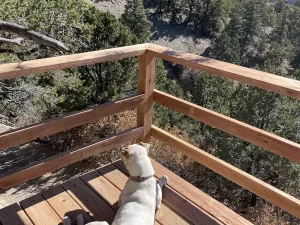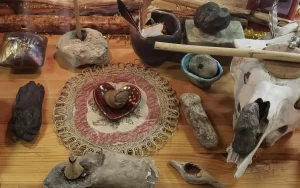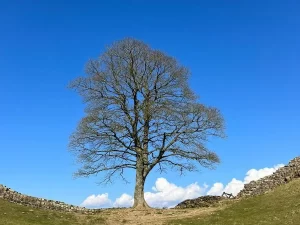Many people experience fear before, or at the start of a psychedelic therapy session. I wanted to share how I view this fear.
When we feel called to do this work (and I say that to distinguish it from ‘thoughtless’ or ‘recreational’ use) it is an opportunity for the ego, the conscious, limited sense of ourselves, to honor and accept the reality of the unconscious, the Soul, which is so much vaster than the ego. When we commit to this work, ideally, our ego is asking for the door or the veil to the unconscious to be lifted and to receive the soul’s gifts, messages and demands. Elsewhere I have written (link to ego defenses) about various ways in which the ego tries to stay in control during this process, which is an inherent contradiction with honoring and accepting the truth that the soul exists and that its wisdom is valid. The ego needs to accept this, but it is threatening to the ego to accept that there is something vaster, more powerful and wiser than itself and on the way to this acceptance, the ego throws up fear as a barrier.
Even people who have worked with plant spirit medicines for a long time will experience this fear, even fleetingly, because it’s hard for the ego to let go, every time. It means we are really doing the work. If there was no fear, it means the ego doesn’t feel threatened or challenged.
There are several corollaries:
One is that there is no such thing as a ‘bad trip.’ Well, there can be bad trips if someone uses these teachers with lack of respect, for selfish intentions or for ‘recreational’ purposes, but we shouldn’t use these teachers in this way ever. Nevertheless, when we work with these teachers with proper respect and intention, it is the ego-challenging, ego-stretching or ego-transcending experiences where the opportunity for true, deep growth lies. When we feel awe and grace, at the power and benevolence of the soul, when our ego surrenders to that which is bigger than itself (incidentally a good definition of spirituality) that’s when we are truly transformed, reborn. A corollary to this corollary is that the ego may make us feel during the experience ‘I’m not doing this right.’ If this feeling comes us, recognize it as an ego defense, comfort your ego like a child and get back to surrendering to your soul. After the experience, the ego may say ‘that was interesting’ or ‘that was an interesting effect of the molecule’ or similarly dismissive judgements. We have to beware of these judgements. When we invite our soul and our soul gives us the gift of its presence, it is very dangerous to dismiss this afterwards. That is why integration is so important. Integration is really an ongoing commitment to honoring what the soul has asked of us and making the required changes in our ego patterns, attitudes and life. Integration, at its best, also reminds us that the deeper relationship between the ego and soul, the door that has been opened, the veil that has been lifted, the sacred inner union that has been restored and recommitted to, is possible without plant spirit medicines. It is our divine (Goddess-given) right and we don’t need plant spirit medicines to keep this relationship alive going forward.
The other corollary is that ego growth is challenging, even painful to the ego. It’s like a snake shedding its skin, or a spider its carapace or the butterfly emerging from the hard, constricting shell of its chrysalis. It has to be painful and confusing. The ego is bound, due to its inherent function of maintaining its integrity and importance, to throw up defenses. There’s an emotional threshold to cross. A threshold of fear, confusion and other ego defenses. It’s when we recognize these defenses that we can reframe them as ‘ok the ego is really being forced to let go’ and recommit to surrendering to the soul. That’s why it’s important to recognize these defenses. All ego growth is challenging, especially without the use of plant spirit teachers. When we recognize the ego defenses, regardless of situation, it’s an opportunity to remember that we are being invited to grow towards soul. It can happen when we are hiking alone in nature, especially when we get lost or nature makes us feel small and a weak part of it. It can happen in sacred relationships, when the journey of transformation with our partner brings up ego defenses.
There’s an old, silly saying, “The ego is not your amigo.” Don’t get me wrong. We need our ego. Without our ego, we would literally disintegrate. The ego is linked to incarnation. The ego has a purpose, that is to serve the soul, to make manifest, to carry out the soul’s directions. But the ego has tricked us into thinking it’s all there is and it’s the boss. This has happened during the historical period of ‘enlightenment’ (a really inappropriate term) also called ‘The Age of Reason.’ This period starting with certain humanist philosophers about 400 years ago has resulted in the ego being worshipped as the highest arbiter. When the philosopher Rene Descartes (1596-1650) said ‘I think therefore I am.’ this became the main mantra of the age of reason. But it was also a terrible curse, because it cast the spell that the ego is the boss over individuals and collectives. It had many negative consequences including various genocides, driven by the arrogance that the ego is king and thus ‘cultures’ (predominantly European) that were ego-driven and free from ‘superstitions’ (a world-view that the ego and the human is just a small part of a larger system of Nature and needs to respect this relationship) were justified in ‘civilizing the savages.’ It also led to fear and hatred towards practitioners of relatedness, such as ‘witches’, etc.
This essay (the etymology of which comes from the French ‘to attempt’) took us on a bit of wild ride regarding the ego. While there are many directions to be pursued and elaborated, including the different kinds of fear and their purposes, I want to explore only one more theme, which is the ego and incarnation. Above I mentioned that we need our ego and would disintegrate without it and that it’s linked to incarnation. Do all incarnated things have an ego? It’s been shown that even ‘simple insects’ like bees can recognize themselves in a mirror, considered a sign of ego consciousness. I guess we need to talk about the relationship between ego and consciousness. While we all have an inate, instinctive sense of what the ego and consciousness are (‘I think therefore I am.’), when we are in ego consciousness, we are really in a story of who we think we are, which comes with an illusion of continuity. We are not the same person we were yesterday or 10 years ago, but the ego would convince us we are. We think the ego is continuous, but where does it go when we go to sleep? Are we not ourselves when we sleep (and dream)? The ego, the story we tell ourselves about who we are, is almost like a movie set that we are not aware of. This is a paradox I haven’t fully understood yet. We are actually quite unconscious that we are stuck in the ego. The ego, the story we tell ourselves about ourselves is literally just a program running in the Default Mode Network.
Do we need to be incarnated to have an ego. I can’t say, because my thoughts about the ego are limited by my current experience as an incarnated human. Do you remember the old children’s game ‘Pin the tail on the donkey’? The game requires the player to be blindfolded and then try to pin a tail on a drawing of a donkey. Being blindfolded is the essence of the game. If we weren’t blindfolded, it would be a rather stupid and unentertaining game. By analogy, when we incarnate, it’s as if we are playing a cosmic game of ‘Pin the tail on the donkey.’ We put on the blindfold of incarnation, of ego, of separateness. We forget we were souls before (and will be souls after). We forget what we knew before we incarnated. We chose to put on a blindfold. This blindfold is important. It allows us to have challenging experiences we can only have when we incarnate, of suffering, loss, heart-break, and joy and remembering and reconnecting. The experiences of the Buddha after leaving his childhood palace (the psychological symbolism is rather hamfisted) or the awe in the suffering described in the Book of Job express this essential aspect of incarnation. The experiences we have while we are incarnated are important, not just for our own soul’s growth, but for grace and redemption…of our ancestors and so many other beings. And these dark, challenging, blind-folding gifts of incarnation are what the angels are jealous of us for. The angels representing all the disembodied beings, who can see everything, all the connections, but can’t cry or feel the other feelings that are the privilege of the incarnated.
share this blog:
Recent Posts
Archives
- December 2023
- November 2023
- September 2022
- July 2022
- September 2021
- August 2021
- July 2021
- June 2021
- April 2021
- March 2021
- February 2021
- January 2021
- November 2020
- October 2020
- August 2020
- July 2020
- June 2020
- May 2020
- April 2020
- March 2020
- February 2020
- October 2019
- September 2019
- July 2019
- May 2019
- March 2019
- September 2018
